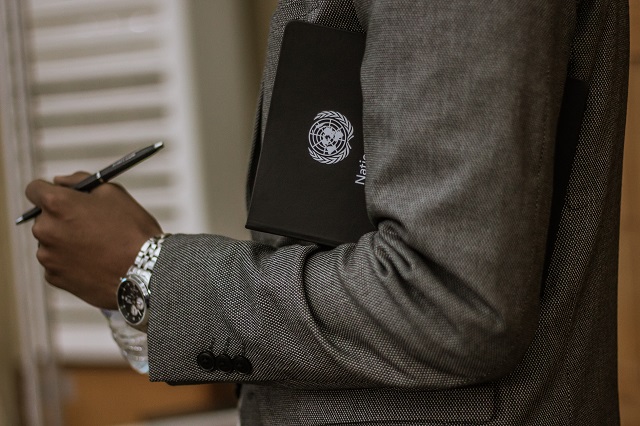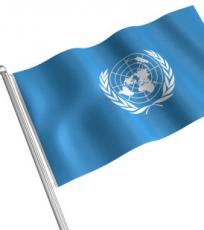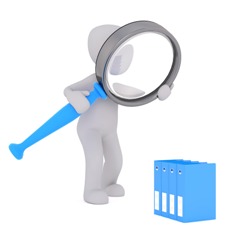Government and NGO interim CEDAW reports set out work to be done
Fri 13 Nov 2020
The New Zealand government and non-government organisations (NGOs) have submitted follow-up information to the UN Committee on the Elimination of All Forms of Discrimination against Women.

The New Zealand government is required to report to the Committee every four years on New Zealand's progress implementing the Convention on the Elimination of All Forms of Discrimination against Women (CEDAW). At that time, NGOs are also invited to submit reports, known as shadow or alternate reports.
The last reporting cycle was completed in 2018. At the end of the process, the UN Committee on the Elimination of Discrimination against Women published Concluding Observations on New Zealand's 8th CEDAW report. The Committee requested the NZ government provide, within two years, written information on the steps taken to implement several of the recommendations on key concerns from its Concluding Observations (CEDAW/C/NZL/CO/8, see paragraph 55), instead of waiting the usual four years.
Specifically, the Committee asked the government to report on the recommendations in paragraphs 20, 26 (a), 40 (a) and 48 (a). These are:
20. "The Committee reiterates its recommendation (CEDAW/C/NZL/CO/7, para. 16 (c)) that the State party provide the New Zealand Human Rights Commission with sufficient human, technical and financial resources to carry out its mandate to promote and protect women’s rights. It further recommends that the State party repeal section 392 of the Immigration Act 2009 with a view to ensuring that the Commission is mandated to receive and process complaints from migrants, in line with the recommendations issued in 2016 by the Global Alliance of National Human Rights Institutions."
26 (a). "Adopt a comprehensive and cross-party on combating gender-based violence against women in accordance with general recommendation No. 35 and ensure its consistent implementation, including by strictly applying the provisions of the bill on family and Whanau violence legislation, once adopted, and by, inter alia, including measures that specifically protect women with disabilities who are victims of abusive caregivers;"
40 (a). "Remove abortion from the Crimes Act 1961 and amend the Contraception, Sterilisation and Abortion Act 1977 in order to fully decriminalize abortion and incorporate the treatment of abortion into health services legislation;"
48 (a). "Establish a royal commission of inquiry with an independent mandate to engage in wide-ranging evaluation of the drawbacks for women, the obstruction of justice for women and the hindrances to their safety inherent in the family court system and to recommend the legislative and structural changes necessary to make the family courts safe and just for women and children, in particular in situations of domestic violence;"
In August 2020, the Government published follow up information to CEDAW responding to this request.
Several non-government organisations have provided shadow or alternate reports, including the National Collective of Independent Women’s Refuges (NCIWR), the Backbone Collective, the Coalition for the Safety of Women and Children, the Disabled Women's Forum and Pacific Women’s Watch (New Zealand).
The NGO reports commend some government actions taken to address family violence, such as domestic and family violence legislation (for example, Domestic Violence (Victims’ Protection) Act 2018 and Family Violence Act 2018), a new funding model for service providers, and funding and engagement to enable service providers to rapidly respond to family violence during COVID-19.
However, the NGO reports also highlight a number of areas where the government has failed to address the CEDAW recommendations.
The reports describe areas for improvement in the government's efforts to provide a coordinated and strategic response to violence against women. They note a lack of progress, that government responses often do not reflect the gendered dynamics of intimate partner violence, and that women with disabilities are still not effectively consulted or considered.
All of the NGO reports highlight the lack of a national plan or strategy to address violence against women. The NCIWR writes:
"The Joint Venture Business Unit (JVBU) was intended to provide a cross-Ministry collaboration leading Government’s work in gendered violence. However, as with previous collaborative initiatives preceding the establishment of the JVBU, progress appears to have been minimal. Their principal stated purpose was the development and implementation of a national strategy. The expected release date was early 2019; as of September 2020 there has yet to be a circulated draft or notification of intended use by generalist or specialist workforces."
The Pacific Women's Watch report also highlights the lack of a written commitment from the Joint Venture to either CEDAW or to the Beijing Declaration and Platform for Action’s 12 Critical Areas of Concern. They recommend that the CEDAW principles should be a basis for a national strategy on violence, along with the Beijing Declaration and Platform for Action.
Several reports identify ways in which the government has not adequately addressed systemic issues within the Family Court for victims of family violence. The report from the Backbone Collective emphasises that the Ministerial Family Court Review did not address or consider issues specific to family violence. The Collective's report states that if the recommendations of Te Korowai Ture ā-Whānau: The final report of the Independent Panel examining the 2014 family justice reforms are implemented,
"... the Family Court will likely be more efficient and effective for the straightforward cases that do not involve family violence. However, the Panel’s recommendations will not address the most central issue for victim-survivors – the culture and operation of the Family Court or the wide-ranging failures in the Family Court that Backbone has reported in the past three and a half years (including the lack of monitoring or accountability for those working in the Court, a lack of a family violence lens to view cases through, and the use of parental alienation accusations by those working in the court)."
The Disabled Women's Forum report says it appreciates having a government who take gender-based violence seriously but highlights a number of persistent issues including: there are currently no measures that specifically protect women who are disabled in New Zealand; the invisibility of disability in data collection on violence; and service providers having no mandatory requirement to ensure accessibility, establish training, policies and procedures, or employ disabled advocates/staff. They note the intersecting forms of discrimination that impact disabled women’s lives.
The report from Pacific Women's Watch (New Zealand) highlights a lack of awareness among women about their rights under the Convention and calls on the government to "Adopt and adequately fund the implementation of a New Zealand Action Plan for the advancement of women, and further strengthen the role, efficiency and effectiveness of the Ministry for Women by allocating adequate human, technical and financial resources thus enabling the Ministry to carry out its mandate to promote and protect women’s rights."
Other issues highlighted include the lack of funding for long term and therapeutic support for victims of intimate partner violence; gaps in legislation related to stalking for victims of intimate partner violence; legal aid being unavailable or resulting in significant debt for many women; and unhelpful language (for example "family harm" and "vulnerable").
For more information about CEDAW and the government's obligations, see the Ministry for Women, which is the lead agency responsible for reporting to the UN Committee. For reports related to CEDAW, see the United Nations Treaty Body Database information for New Zealand.
Stuff journalist Kirsty Johnston has written an article about the reports and concerns. The article is part of an investigative series from media outlet Stuff exploring how women who are experiencing violence are often trapped by the systems that are intended to help them (see media list below). These include articles on the work done towards developing a national strategy under the previous Government (including by Interim Te Rōpū) and the experiences of mothers who are victims of family violence in the Family Court.
Related news
UN Women has published an Implementation Package (2020) of practical resources and tools to support the implementation of the RESPECT Women: Preventing Violence against Women Framework. The Framework was developed by WHO, with UN Women, in 2019 and is endorsed by 12 other UN agencies and bilateral partners.
The UN Special Rapporteur on violence against women and the UN Office of the High Commissioner for Human Rights have published the report 25 years in review of the Beijing Platform for Action: Contributions of the Platform of independent expert mechanisms on the elimination of discrimination and violence against women (EDVAW Platform) towards its implementation (2020). The report summarises the work of the seven UN and regional independent women’s human rights expert mechanisms to address discrimination and gender based violence against women and girls in relation to the Beijing Platform for Action.
Related media
Sexual violence strategy: ‘Fighting four decades of status quo’, Newsroom, 03.12.2020
Violence Against Women and Children in Aotearoa New Zealand w/ Dr. Debbie Hager, 95bFM, 12.10.2020
Strategy to transform family violence written off as 'too Māori', Stuff, 27.09.2020
Abuse victims are urged to get police protection. They're left with debt, Stuff, 25.09.2020
25 Years After Beijing’s Women Conference, Significance ‘undimmed’, Article: UN News, 06.09.2020
Jan Logie: Finding a way to disrupt our record on sexual violence, NZ Herald, 27.07.2020
New sexual violence laws will help more victims come forward, Rape Crisis says, Stuff, 08.07.2020
Image: Ilyass SEDDOUG on Unsplash






